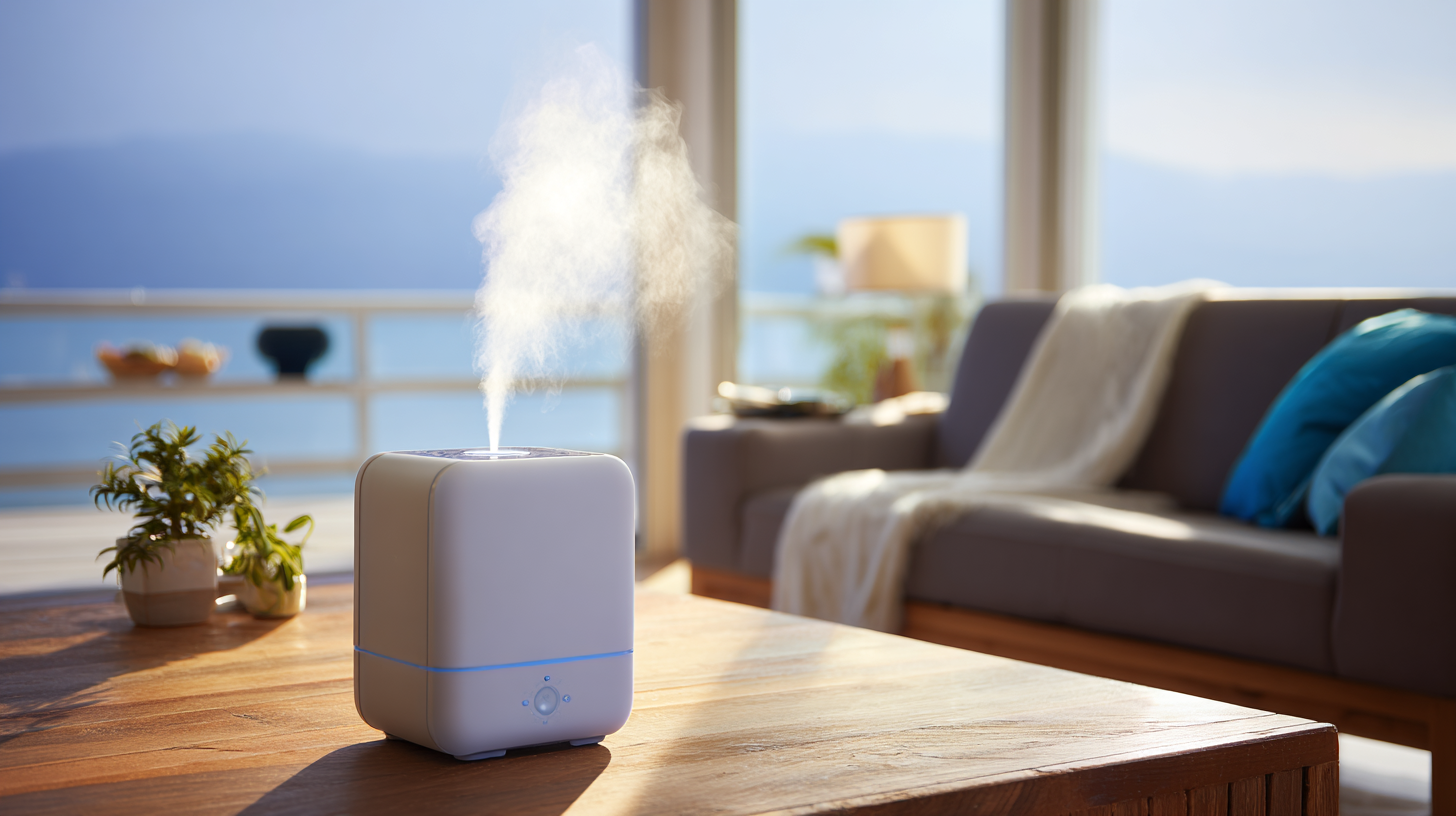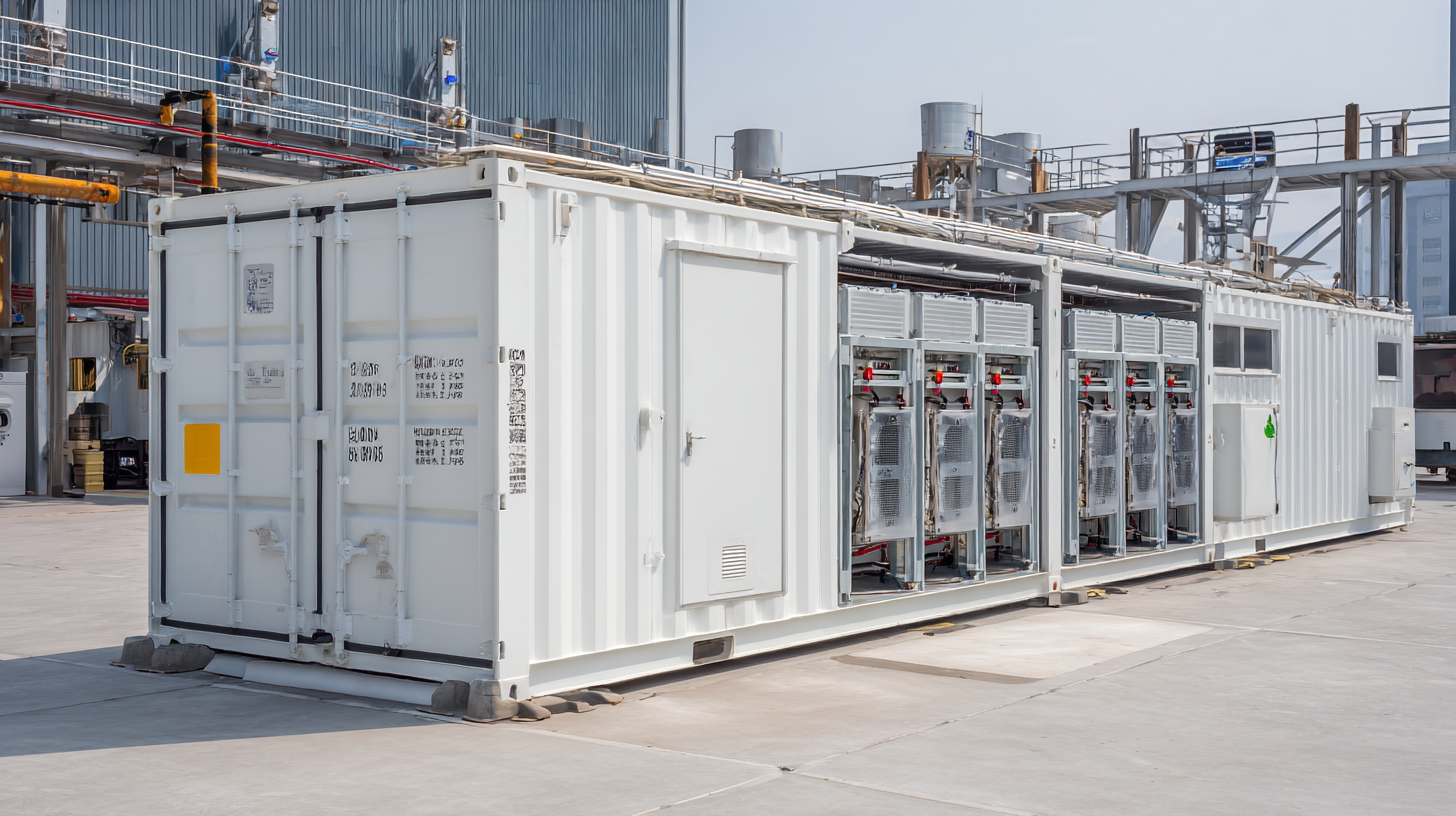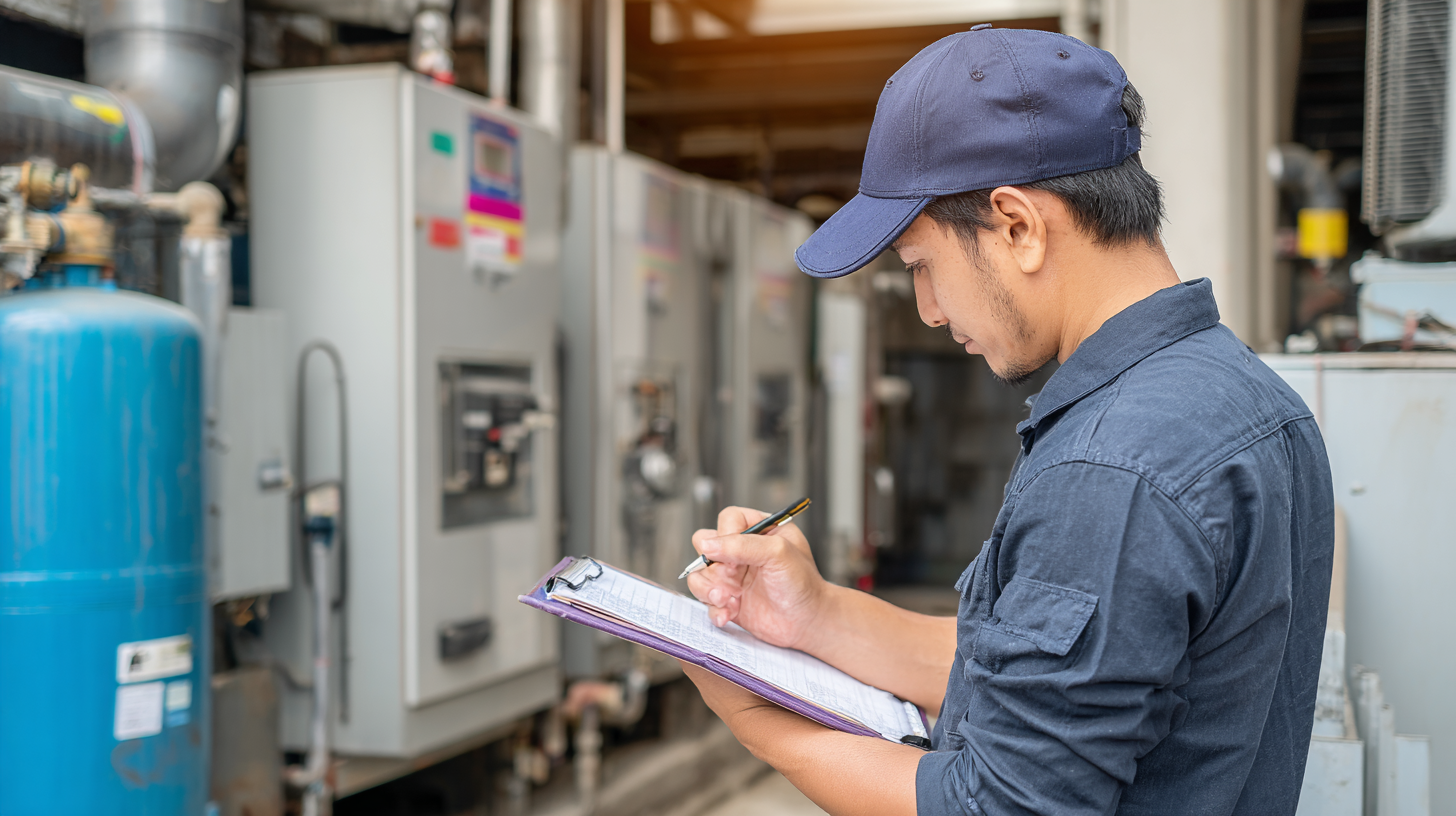In the ever-evolving landscape of global trade, the significance of climate control systems, particularly humidifier HVAC installation, cannot be understated. The global HVAC market is projected to reach a staggering USD 200 billion by 2027, with increasing demand for energy-efficient and sustainable solutions driving this growth. According to the International Trade Administration, the import and export of HVAC systems, including advanced humidification technologies, are essential as businesses seek to enhance indoor air quality while meeting regulatory standards.

Additionally, the U.S. Environmental Protection Agency notes that maintaining optimal humidity levels can improve energy efficiency by up to 15%. As countries establish stringent certification requirements for HVAC installations, understanding the nuances of these regulations becomes paramount for entering international markets and optimizing trade practices. Thus, exploring the best practices for humidifier HVAC installation not only aids compliance but also unlocks new opportunities in global trade.
Understanding the importance of humidifier HVAC systems in global trade is crucial for maintaining optimal climate conditions across various industries. Proper humidity control is essential for preserving the integrity of products, especially in sectors such as pharmaceuticals, food storage, and textiles. According to a report by the Global HVAC market research, the HVAC system market is expected to grow significantly, driven by increasing demand for improved air quality and energy efficiency. In fact, efficient humidity management can reduce energy costs by 30% while enhancing product longevity.
Maintaining ideal humidity levels not only benefits product quality but also ensures compliance with international shipping standards. For instance, wood products must be transported within specific moisture content ranges to prevent warping. This underlines the need for businesses involved in import and export to invest in certified humidifier HVAC installations.
**Tips:**
1. Regularly monitor humidity levels in storage and shipping areas to adjust HVAC settings accordingly.
2. Always ensure that HVAC systems are installed by certified professionals to meet industry standards and regulations.
3. Keep HVAC systems well-maintained to enhance their efficiency and longevity, which ultimately protects your goods during transit.
When engaging in the import and export of HVAC equipment, understanding the key certifications is pivotal for ensuring compliance and facilitating smooth global trade. Among the most critical certifications are the ISO 9001 and CE marking. ISO 9001 establishes international standards for quality management systems, ensuring that products meet customer and regulatory requirements consistently. On the other hand, CE marking denotes conformity with European health, safety, and environmental protection standards, which is essential for accessing EU markets.

Additionally, the AHRI certification is vital for HVAC manufacturers, indicating that their products have been tested and verified for performance and efficiency. This certification not only helps in gaining customer trust but also facilitates the meeting of regulatory requirements in various countries. By acquiring these certifications, businesses can mitigate risks and enhance their competitive edge in the global marketplace, ultimately driving the successful import and export of HVAC equipment.
 When it comes to humidifier installation, HVAC professionals must adhere to best practices to ensure efficiency and safety. Proper installation is crucial not only for the optimal performance of the system but also for the health of building occupants. A well-installed humidifier can maintain ideal indoor humidity levels, which is essential in preventing airborne illnesses and promoting overall comfort. This involves following manufacturer guidelines, selecting the appropriate unit size, and ensuring that the humidifier is correctly integrated into the HVAC system.
When it comes to humidifier installation, HVAC professionals must adhere to best practices to ensure efficiency and safety. Proper installation is crucial not only for the optimal performance of the system but also for the health of building occupants. A well-installed humidifier can maintain ideal indoor humidity levels, which is essential in preventing airborne illnesses and promoting overall comfort. This involves following manufacturer guidelines, selecting the appropriate unit size, and ensuring that the humidifier is correctly integrated into the HVAC system.
In addition to installation techniques, maintenance plays a significant role in the effectiveness of humidifiers. Regular cleaning is essential to prevent mold and bacteria growth, which can pose health risks. Experts recommend cleaning the humidifier every few weeks and ensuring that water is fresh to maintain air quality. HVAC professionals should educate clients on the importance of routine maintenance, as neglecting this aspect can lead to system failures and increased energy costs. By prioritizing both installation and maintenance best practices, professionals can unlock the full potential of humidifiers in enhancing indoor air quality and comfort.
Navigating through the complexities of regulatory compliance is essential for businesses involved in the humidifier HVAC trade. As global trade expands, the importance of adhering to various international regulations cannot be overstated. According to a report by the International Trade Centre, the global HVAC market is expected to reach $200 billion by 2025, with a significant portion attributed to humidifiers. This growth amplifies the need for robust compliance strategies to navigate tariffs, trade agreements, and safety standards which vary widely between regions.
The installation and export certification processes play a pivotal role in ensuring seamless trade operations. Key certifications like ISO 9001 and CE markings are critical for manufacturers looking to penetrate European and North American markets. The European Commission's directive mandates stringent performance and safety regulations, with potential fines reaching up to €20,000 for non-compliance. Moreover, the HVAC industry relies heavily on updates from regulatory bodies, as 71% of businesses cite regulatory changes as a key challenge. Ensuring compliance not only facilitates smoother trade but also enhances consumer trust and confidence in humidity control technologies, ultimately driving sales and innovation in this rapidly growing sector.
The global humidifier HVAC market is poised for significant transformation, driven by advancements in technology and evolving consumer needs. As awareness of indoor air quality increases, so do the expectations for HVAC systems that can efficiently manage humidity levels. Future trends indicate a shift towards smart humidifiers equipped with IoT capabilities, allowing for real-time monitoring and adjustments. This integration not only enhances user experience but also promotes energy efficiency, making it a key consideration for manufacturers and installers alike.
When navigating the import-export landscape of humidifier HVAC systems, obtaining the right certifications becomes crucial. These certifications ensure compliance with international standards, facilitating smoother market entry and boosting consumer confidence. To stay competitive, businesses should prioritize acquiring recognized certifications that align with sustainability practices and innovative design.
**Tip:** Invest in training for your installation teams to keep them updated on the latest certification requirements and technologies in the HVAC industry.
Furthermore, networking with global trade organizations can provide insights into emerging trends and certification needs across different markets.
**Tip:** Attend industry conferences and workshops to build relationships and gather valuable knowledge, which can significantly enhance your business's market positioning.
| Region | Market Size (2023) | Projected Growth Rate (2024-2028) | Key Certification Requirements | Major Exporting Countries |
|---|---|---|---|---|
| North America | $2.5 Billion | 5% CAGR | UL, AHRI, EPA | USA, Canada |
| Europe | €1.8 Billion | 4% CAGR | CE, EN, ISO | Germany, France, UK |
| Asia-Pacific | $3 Billion | 6% CAGR | GS, RoHS, CE | China, Japan, South Korea |
| Latin America | $0.7 Billion | 3.5% CAGR | SENAI, INMETRO | Brazil, Mexico |
| Middle East & Africa | $0.5 Billion | 4.2% CAGR | GCC Standard, ISO | UAE, South Africa |